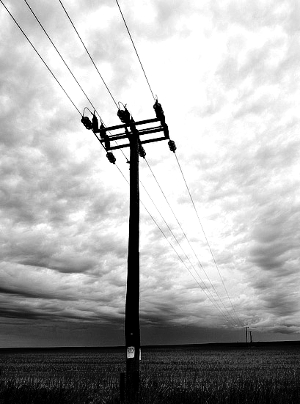CEFC disagrees with 'clean coal' push
 The Clean Energy Finance Corporation has rejected the Federal Government's claim that renewable energy leads to blackouts.
The Clean Energy Finance Corporation has rejected the Federal Government's claim that renewable energy leads to blackouts.
The CEFC argues that “high levels of renewable penetration are technically feasible and consistent with maintaining energy security”.
The agency also says continuing to avoid investing in renewable energy and storage will cause electricity prices for consumers to rise.
“If ageing coal-fired generation capacity is withdrawn before new renewable energy capacity is available to meet the shortfall, prices are likely to be higher and more volatile,” it told an inquiry this week.
“To facilitate a smooth transition to a high-renewables system and avoid price spikes, policies should support early investment in renewables to prepare in advance for coal capacity withdrawals.”
It is a strong contradiction of the Federal Government’s claims that investment in “clean coal” is needed to maintain baseload power.
The Government is seeking to change the CEFC's mandate so that it will invest in “clean coal” technologies, with the gas industry pushing hard for the government agency to conduct R&D into technology it can use.
The CEFC is not keen.
“New fossil-fuel generation in Australia would be unlikely to find private sector finance at an acceptable cost,” its submission to chief scientist Alan Finkel's review of the future security of the energy grid.
“While the range of cost estimates for new coal-fired generation capacity are broadly comparable with new renewable energy capacity (excluding any cost for carbon emissions), negative investor perceptions mean that new investment in coal-fired capacity would be unlikely to be financed by Australian or international capital markets.
“Investors perceive that new fossil-fuel generation capacity has carbon risk, which is the risk that a new asset would be stranded if a future government were to adopt tighter emissions constraints.
“Further, there is arguably no longer a social licence for new coal-fired power stations in Australia.
“While there are several proposals in the market for new gas-fired generators in Australia, our observations indicate that it is challenging to find long-term domestic gas supply agreements to support new investment.
“Gas prices are expected to rise significantly further in real terms over the next 15 years as international demand increasingly determines Australian domestic gas prices through LNG exports.”
The CEFC says Carbon Capture and Storage (CCS) technologies are simply not ready to help Australia meet emissions reduction targets agreed to at the 2015 Paris Accord.
Instead, it wants time and money spent transforming the electricity sector with more renewables.
It argues:
- The cost of renewable systems and storage continue to decline
- Energy storage is the key to an electricity system with high renewables penetration
- Biomass can help provide baseload renewable energy with existing technology
The CEFC admits the current transmission network will struggle to accommodate higher levels of renewable energy supply.
“Investment in strengthening transmission interconnections between regions will help balance supply and demand, reduce price volatility, promote access to least-cost renewable energy resources and boost system redundancy in a grid with high renewables penetration,” it said.








 Print
Print